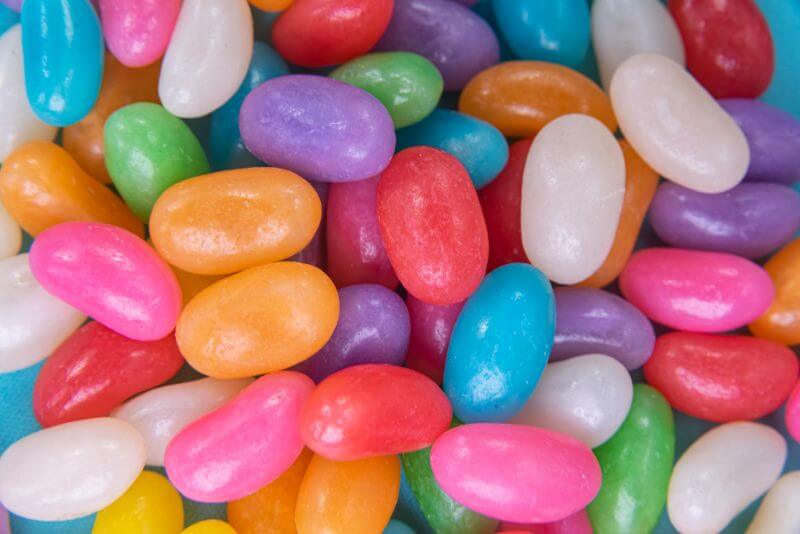Powdered sugar, also known as confectioners’ sugar or icing sugar, is a finely ground sugar made from granulated sugar that has been milled into a soft, white powder. It usually contains 2% to 5% of an anti-caking agent, such as cornstarch, potato starch, or tricalcium phosphate, to prevent clumping and improve flow.
Powdered sugar is commonly used in baking and cooking for a variety of purposes, including. Powdered sugar’s fine texture and ability to dissolve quickly make it ideal for creating smooth and creamy frostings and icings. A light dusting of powdered sugar can add a delicate sweetness and elegant touch to cakes, pastries, and cookies.
Powdered sugar can be used to thicken liquids such as puddings, sauces, and cocktails. Powdered sugar can be sprinkled over fresh fruit or used to make fruit compotes and desserts. Powdered sugar is an essential ingredient in many types of candy, such as fudge and fondant. Powdered sugar can be purchased in most grocery stores. It is typically sold in boxes or bags, and it can also be found in bulk quantities. When storing powdered sugar, it is important to keep it in an airtight container in a cool, dry place.
What Is Powdered Sugar?
Powdered sugar, also known as confectioner’s sugar or icing sugar, is a finely ground form of granulated sugar. It’s used in a variety of recipes, from icing and frosting to pastries and candies.
Its fine texture allows it to dissolve quickly, making it perfect for sweetening foods without leaving a grainy residue. But what exactly is causing the powdered sugar shortage? This question has been on the minds of many baking enthusiasts and professionals alike.
Is There A Powdered Sugar Shortage?
Yes, Powdered sugar has been in shortage. The shortage isn’t isolated to a single country but has been observed in several places around the world. Many consumers are finding it harder to locate powdered sugar on supermarket shelves or are noticing a significant price increase.
What started as a whisper in baker’s forums and social media platforms has now turned into a full-blown concern. The powdered sugar shortage is not a myth, but a reality that’s affecting many.

Reason For The Shortage
Several factors contribute to the powdered sugar shortage. One major reason is the disruption of supply chains due to the global pandemic. Covid-19 has caused a ripple effect in many industries and sugar production hasn’t been spared.
Transportation issues have also been a big factor. With restrictions on movement and travel, getting the sugar from the mills to the stores has become a challenge. This has led to delays and, eventually, shortages.
Another key factor is increased demand. With more people at home due to lockdowns and restrictions, baking has become a popular pastime. This has led to a surge in demand for baking ingredients, including powdered sugar.
Moreover, weather conditions affecting sugarcane crops have played a role. Adverse weather has led to poor harvests in some key sugar-producing countries. This has resulted in less raw material for producing powdered sugar.
Related Article:
What Are The Ingredients In Powdered Sugar?
Powdered sugar has two main ingredients:
- Granulated Sugar: This is the primary ingredient, typically making up 95-98% of the total volume. The type of granulated sugar used can vary; cane sugar and beet sugar are both common options.
- Anti-caking Agent: This makes up the remaining 2-5% and prevents the powdered sugar from clumping together. Cornstarch is the most common anti-caking agent used, though potato starch and tricalcium phosphate may also be found in some brands.
In addition to these two main components, some powdered sugar brands may include additional ingredients. Vanilla or other flavorings may be added to enhance the taste. Artificial or natural colorings may be used to achieve a specific color for decorative purposes. Some brands may include anticaking agents like silicon dioxide or anticaking salts.
Impact On Market And Customer
1. Rising Prices
The powdered sugar shortage has led to significant price increases, affecting both consumers and businesses alike. The increased demand and reduced supply have caused prices to spike, making it more expensive for everyone to purchase this staple ingredient.
2. Struggling Bakeries and Restaurants
Bakeries and restaurants that heavily rely on powdered sugar for their recipes are feeling the pinch. With the cost of powdered sugar soaring, many establishments are forced to either raise their prices or reduce the use of powdered sugar in their offerings.
3. Product Availability And Adaptation
The shortage has also resulted in limited product availability on store shelves. Consumers may find it challenging to find powdered sugar in their local grocery stores, leading to the need for creative adaptations and substitutions in their recipes.
What Are Alternatives To Powdered Sugar?
Homemade Powdered Sugar One alternative to store-bought powdered sugar is to make it yourself at home. You can easily create your powdered sugar by blending granulated sugar with a small amount of cornstarch in a high-powered blender or food processor. This homemade version allows you to control the texture and adjust the amount of cornstarch used.
Whipped cream is an excellent alternative to powdered sugar-based frostings and toppings. While it may not provide the same level of sweetness, whipped cream is a lighter and airier option that can still add a delightful touch to your desserts.
For a liquid sweetener alternative, consider using agave syrup or maple syrup. While these options won’t provide the same texture as powdered sugar, they offer a natural sweetness that can be used to drizzle over pancakes, waffles, or other baked goods.
Conclusion
The powdered sugar shortage might seem like a daunting challenge, but it’s important to remember that it’s a temporary situation. With resilience and creativity, we can navigate this shortage and continue to create delicious, sweet treats.
Whether it’s exploring alternative sweeteners or making your powdered sugar, there are solutions available. So, keep your spirits high, and your ovens warm, and remember that every challenge presents an opportunity to innovate.
FAQs – Powdered Sugar Shortage
What Is Causing The Powdered Sugar Shortage?
The shortage of sugar is primarily due to disruptions in the sugar supply chain, compounded by factors such as rising costs and import restrictions. Additionally, the pandemic has led to challenges in sugar production and distribution.
How Is The Shortage Affecting Confectioners And Bakers?
The powdered sugar shortage is impacting confectioners and bakers by limiting their access to essential ingredients for their products. Some are exploring alternatives such as alternative sweeteners or finding ways to make their powdered sugar to cope with the scarcity.
Are There Any Specific Regions Or Varieties Of Sugar Impacted By The Shortage?
The shortage is affecting various types of sugar, including powdered sugar, granulated sugar, and cane sugar. It has widespread effects on the sugar market and has led to concerns about sugar policy in the industry.
How Long Is The Powdered Sugar Shortage Expected To Last?
The duration of the powdered sugar shortage is uncertain, but experts anticipate that it may persist into 2024 due to ongoing challenges in the sugar industry and sugar market.
What Measures Are Being Taken To Address The Sugar Shortage?
Efforts are underway to address the shortage through initiatives such as the Alliance for Fair Sugar Policy and advocacy for policies that support stabilizing the sugar market and bolstering sugar production.
Are There Any Creative Solutions For Dealing With The Powdered Sugar Shortage?
Given the shortfalls in the sugar market, food manufacturers are exploring strategies such as incorporating stevia or others.




